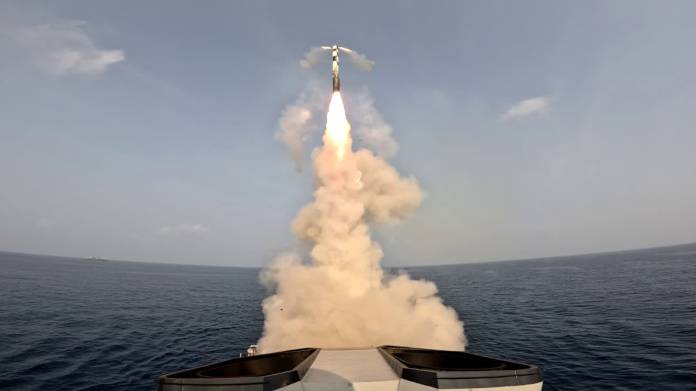According to a source within the Indian defense industry, an agreement between an Indian company and the Russian manufacturer of the S-400 air defense systems for local maintenance and repair is nearly complete. This has been reported by various media outlets, including EurAsian Times, Russia’s Sputnik, and India’s Times of India.
The key joint venture involves an Indian firm collaborating with Almaz-Antey, the Russian state-owned company that developed the S-400 surface-to-air missile (SAM) system. The primary aim of this partnership is to maintain and repair S-400 air defense systems in India, with plans to eventually produce essential components locally.
Negotiations between the Indian company and Almaz-Antey are almost concluded. The partners intend to establish two support centers and commence manufacturing spare parts in India by 2028.
Discussions about India’s role in manufacturing spare parts and maintaining the S-400 system began back in 2019. Reports from BulgarianMilitary.com indicated that Russia and India were negotiating the production of parts for the S-400 systems within India. Sergey Chemezov from Russia’s high-tech company, Rostec, confirmed these discussions. He also mentioned that Russia had previously sold licenses to India for the production of Su-30 fighter jets and T-90 tanks, and collaborated on the development and production of the BrahMos missile in India.
India sought to purchase the Russian-made S-400 missile systems as early as 2015, finalizing a $5.43 billion contract during Russian President Vladimir Putin’s visit to India. This move faced opposition from Washington, which threatened sanctions on countries buying military equipment from Russia. Despite U.S. pressure, India remains committed to acquiring the S-400 systems.
Indian sources report a delay in the delivery of the SA-21 Growler anti-aircraft missile systems from Russia. Originally scheduled for delivery by 2024, the final pair will now arrive between July and September 2026, likely due to the ongoing conflict between Russia and Ukraine. However, Russia has not officially commented on the delay.
In October last year, new information surfaced about India’s pending S-400 units, with photos shared on Russian Telegram accounts showing the transport of key S-400 components. These photos suggested that the final units for India were nearing completion, pending final assembly and quality tests before shipment.
In March 2024, BulgarianMilitary.com reported another delay in the delivery of the final pair of S-400 Triumf systems to India, disrupting India's defense plans which rely on the three existing S-400 units. The delay of the fourth and fifth units, now expected in 2026, is a significant issue for India.
This situation might offer an unexpected benefit for India's defense industry. India, which currently relies on imported parts for various platforms, could leverage the ongoing conflicts and production challenges to gain a major technology transfer from Russia. This would facilitate local assembly of parts and components, turning a challenging situation into a potential advantage through Transfer of Technology (ToT).


